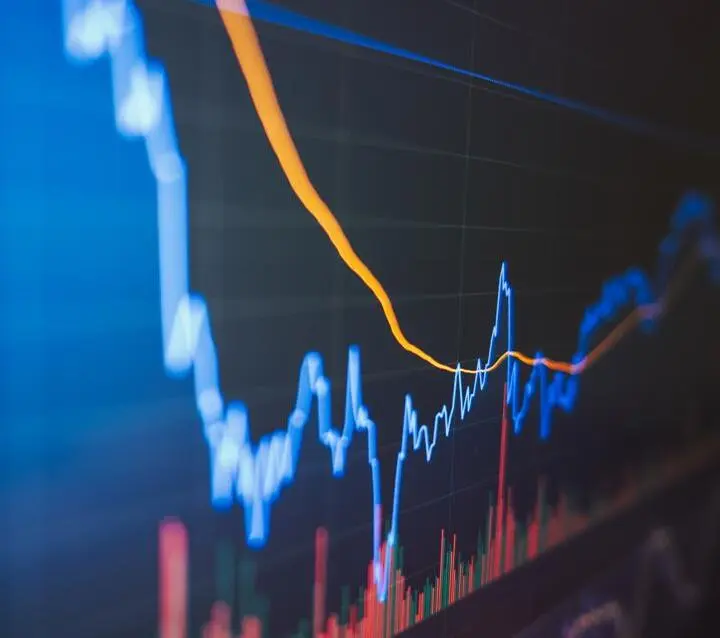Securities Litigation Attorney in Boston
Securities Litigation
We represent individual investors and whistleblowers against brokers, advisors, and corporations that betray their trust.
$255M
SEC whistleblower awards paid in fiscal 2024. Awards range from 10% to 30% of sanctions exceeding $1 million.
1
Federal Trade Commission, “FTC Imposes
$5 Billion Penalty and Sweeping New Privacy
Restrictions on Facebook,” (July 24, 2019).
$5 Billion Penalty and Sweeping New Privacy
Restrictions on Facebook,” (July 24, 2019).
69%
FINRA arbitration claims that settle before hearing. Average resolution: 12 to 14 months.
2
Office of Public Affairs, “Wells Fargo Agrees to
Pay $3 Billion to Resolve Criminal and Civil
Investigations into Sales Practices Involving
the Opening of Millions of Accounts Without
Customer Authorization,” (Feb. 21, 2020).
Pay $3 Billion to Resolve Criminal and Civil
Investigations into Sales Practices Involving
the Opening of Millions of Accounts Without
Customer Authorization,” (Feb. 21, 2020).
89%
Year-over-year increase in Regulation Best Interest violation claims filed with FINRA.
3
U.S. Department of Justice, “Goldman
Sachs Charged in Foreign Bribery Case
and Agrees to Pay Over $2.9 Billion,”
(Oct. 22, 2020)
Sachs Charged in Foreign Bribery Case
and Agrees to Pay Over $2.9 Billion,”
(Oct. 22, 2020)
4 Years
Massachusetts statute of limitations for securities fraud under Chapter 110A, versus 2 years under federal law.
4
Jarett Sena, “Securities-Related Class
Action Settlements of 2023,” Institutional
Shareholder Services (Jan. 18, 2024).
Action Settlements of 2023,” Institutional
Shareholder Services (Jan. 18, 2024).

In 2022, cryptocurrency exchange FTX collapsed, leading to over $8 billion in investor losses due to alleged securities fraud and other financial misconduct.
5
Securities and Exchange Commission,
“Securities and Exchange Commission
v. Samuel Bankman-Fried,” United States
District Court for the Southern District of
New York, Case No. 22-cv-10501
(Dec. 13, 2022).
“Securities and Exchange Commission
v. Samuel Bankman-Fried,” United States
District Court for the Southern District of
New York, Case No. 22-cv-10501
(Dec. 13, 2022).
Most securities fraud goes undetected. Prosecution rates hover around 1%. The institutional investors that dominate federal class actions have resources individual investors lack. We fill that gap. Our practice focuses on claims where individual representation produces results: FINRA arbitration against brokers and advisors, SEC whistleblower submissions, Massachusetts state securities claims, and cryptocurrency fraud recovery.
Overview
National plaintiffs’ firms chase billion-dollar class actions and institutional investors with eight-figure losses. That model serves pension funds. It does not serve individual investors. We represent individuals directly through FINRA arbitration, state court claims, and SEC whistleblower submissions, where your case receives attention and your recovery is the priority.

Massachusetts Chapter 110A provides remedies federal law denies, including fee shifting and a negligence standard for securities fraud claims.
7
Department of Justice, “Bank of America
to Pay $16.65 Billion in Historic Justice
Department Settlement for Financial
Fraud Leading up to and During the
Financial Crisis,” Office of Public Affairs
(Aug. 21, 2014).
to Pay $16.65 Billion in Historic Justice
Department Settlement for Financial
Fraud Leading up to and During the
Financial Crisis,” Office of Public Affairs
(Aug. 21, 2014).
The Massachusetts Advantage
Federal securities law favors defendants. Massachusetts law favors investors. Chapter 110A permits fraud claims based on negligence, not intent. Prevailing plaintiffs recover attorneys’ fees. The limitations period runs four years, not two. Discovery proceeds immediately with no automatic stay. For individual investors, Massachusetts state court is often the better forum.
Read more
- Documented Corporate Decisions: One striking example can be found in the Ford Pinto case, where internal memos reportedly revealed the company's cost-benefit analysis comparing vehicle repairs against projected costs from injuries and deaths. Similarly, court documents show Purdue Pharma marketed OxyContin despite growing evidence connecting it to a nationwide opioid epidemic that contributed to hundreds of thousands of deaths. In another well-documented case, Volkswagen installed "defeat devices" in millions of vehicles to alter emissions testing results while marketing their cars as environmentally friendly.
- Healthcare and Human Cost: Consider how in the health insurance industry, the denial of claims can be treated as a financial gain and the approval of medically necessary care may appear on the balance sheet as a liability. In this framework, human suffering sometimes becomes a business strategy.
- Financial Market Manipulation: In capital markets, institutional investors often extract value from volatility, monetizing turbulence while remaining insulated from its consequences. For many financial institutions, market dislocation isn't a threat—it's a business model. Meanwhile, long-term investors—pension funds, retirees, and ordinary households—absorb the punishing impact of systemic shocks with virtually no protection. These asymmetries aren't accidental; they're engineered to benefit insiders at the expense of everyone else.
- The financial media ecosystem often functions less as a source of objective analysis and more like a loudspeaker amplifying market volatility in what can resemble a rigged casino. Retail investors are frequently coaxed toward action under an illusion of precision. Meanwhile, the system’s celebrated figures (e.g., Sam Bankman-Fried, Caroline Ellison, Jeffrey Skilling, Elizabeth Holmes, Martin Shkreli, Carrie Tolstedt, Rajat Gupta, Charlie Javice, Rishi Shah, and Christine Hunsicker) rise to prominence through compelling innovation narratives. In many cases, their eventual criminal convictions (or guilty pleas) expose the deception behind the spectacle.
- In countless similar cases, corporate executives sacrifice public welfare and long-term stability on the altar of quarterly profits. We represent investors and whistleblowers who refuse to accept this status quo. Securities litigation serves as both a pathway to financial recovery and a powerful mechanism for redefining accountability—challenging a marketplace where misaligned incentives systematically undermine public trust and personal security.

White-collar crime is pervasive and often goes unreported and unprosecuted, with occupational fraud alone accounting
for over $3.6 billion in global losses annually, according to ACFE estimates.
8
Annette Greene, “Fraud: Trends to Look
For,” Defense Logistics Agency Disposition
Services Office of Internal Review
(July 27, 2022).
For,” Defense Logistics Agency Disposition
Services Office of Internal Review
(July 27, 2022).
Practice Areas
We focus on claims where individual representation produces results:
- FINRA Arbitration: Suitability violations, churning, unauthorized trading, failure to supervise, and Regulation Best Interest claims against brokers and advisors.
- SEC Whistleblower Claims: Confidential submissions for individuals with original information about securities violations. Awards of 10-30% on sanctions exceeding $1 million.
- Massachusetts Securities Fraud: State court claims under Chapter 110A with lower pleading standards, fee shifting, and longer limitations periods.
- Cryptocurrency Fraud: Individual investor recovery from exchange failures, unregistered offerings, DeFi exploits, and promoter misrepresentation.

If you lost $100,000 or more through broker misconduct, securities fraud, or cryptocurrency platform failure, we should talk.
Our Approach
Your case receives attention. We handle a selective caseload; your claim is not a number in a mass filing. Contingency fees mean we succeed only when you recover. We advance all costs. You speak directly with your attorney.
How We Help
Suitability and Reg BI Violations
Recommendations that ignored your risk tolerance, time horizon, or investment objectives. Concentrated positions. Unsuitable products sold for higher commissions.
Churning and Excessive Trading
Frequent trades that generate commissions while eroding your portfolio. We analyze turnover ratios and cost-equity data to establish the pattern.
Unauthorized Transactions
Trades you never approved. Account changes without consent. Discretionary trading without written authorization.
Failure to Supervise
Firms that ignored red flags, failed to review accounts, or allowed broker misconduct to continue unchecked.
SEC Whistleblower Submissions
Confidential reporting of securities violations with potential awards of 10-30% of sanctions exceeding $1 million. Anti-retaliation protections apply.
Massachusetts Blue Sky Claims
State court securities fraud claims under Chapter 110A with negligence standard, fee shifting, and four-year limitations period.
Cryptocurrency Exchange Failures
Claims against exchanges, custodians, and principals for misrepresentation, breach of fiduciary duty, and conversion of investor assets.
Unregistered Token Offerings
Recovery for investors in cryptocurrency offerings that violated federal or state securities registration requirements.
Read more
DeFi and Smart Contract Exploits
Claims arising from protocol failures, rug pulls, and platform vulnerabilities that resulted in investor losses.
Crypto Promoter Liability
Claims against influencers and celebrities who promoted fraudulent platforms without adequate disclosure.
Margin Account Disputes
Unsuitable margin recommendations, inadequate risk disclosure, and forced liquidations.
Whistleblower Retaliation
Protection and remedies for employees terminated, demoted, or harassed after reporting securities violations.
Ponzi Schemes and Financial Fraud
Recovery for victims of fraudulent investment schemes through tracing, coordination with receivers, and civil actions.
Hedge Fund and Private Equity Fraud
Undisclosed fees, manipulated valuations, and misrepresented performance data that harm limited partners.
Breach of Fiduciary Duty
Self-dealing, excessive compensation, and oversight failures by officers, directors, and fund managers.
Financial Advisor Misconduct
Unsuitable advice, unauthorized trading, and fiduciary violations in advisory relationships.
Fraudulent Misrepresentation
Materially false or misleading statements in financial reports, earnings calls, or investor presentations.
Failure to Disclose Material Information
Concealment of pending litigation, regulatory investigations, or deteriorating financial conditions.
Market Manipulation and Insider Trading
Algorithmic trading abuses, spoofing, and misuse of material non-public information.
SPAC and ESG Disclosure Claims
Misstatements and due diligence failures in SPAC transactions; misleading ESG representations.
Broker-Dealer Misconduct
Churning, unsuitable recommendations, or unauthorized transactions through broker-dealer accounts.
ERISA Stock Drop Litigation
Retirement plan participant claims for fiduciary breaches tied to inflated company stock.




